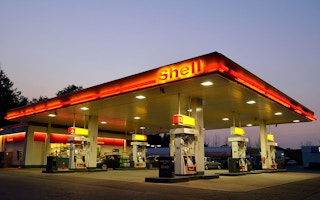Royal Dutch Shell will cut its crude processing capacity in Singapore by half and expand its portfolio of lower-carbon energy solutions, the company announced on Tuesday (10 November).
To continue reading, subscribe to Eco‑Business.
There's something for everyone. We offer a range of subscription plans.
- Access our stories and receive our Insights Weekly newsletter with the free EB Member plan.
- Unlock unlimited access to our content and archive with EB Circle.
- Publish your content with EB Premium.
The move is in line with the company’s target of net-zero emissions by 2050, announced in April this year, and comes amid a drop in global oil demand due to the Covid-19 pandemic.
Shell Singapore’s Pulau Bukom oil refinery will pivot from a crude-oil, fuels-based product slate towards new, low-carbon value chains, delivering a “significant reduction” in carbon-dioxide emissions, the company said in a statement.
Its 1,300 employees employees at Pulau Bukom will be reduced by 500 over the next three years. Its Pulau Bukom site will be one of Shell’s six or so energy and chemicals parks worldwide. Efforts to study the production of bitumen, biofuels, and feedstocks made from recycled chemicals have begun.
Besides expanding its solar footprint in Singapore, Shell aims to build an extensive network of electric vehicle charging stations on the island by 2030. In shipping, it intends to scale up its liquefied natural gas bunkering capacity with the arrival of the city-state’s first bunkering vessel later this year.
Shell’s announcement comes about six months after the coronavirus outbreak caused oil prices to collapse, with grim projections by some analysts that oil consumption may never return to pre-pandemic levels.
“Our businesses in Singapore must evolve and transform, and we must act now if we are to achieve our ambition to thrive through the energy transition,” said Aw Kah Peng, chairman of Shell companies in Singapore.
Sara Ahmed, an energy analyst at the Institute for Energy Economics and Financial Analysis (IEEFA), an energy think tank, said the pandemic has revealed weaknesses in the existing economic system, accelerating trends such as the switch to green energy and environmental, social and governance (ESG) investing.
Shifting to low-carbon alternatives, she told Eco-Business, is a way to diversify out of risks of stranded assets and stranded labour as the economics of fossil fuels continue to deteriorate.
Although some workers will lose their jobs during the transition, “it allows for the workforce to be well positioned for jobs of the future that will ensure greater stability, such as in renewable energy, energy efficiency, grid modernisation and storage, and electric vehicles”, she noted.
Dr Philip Andrews-Speed, senior principal fellow at the Energy Studies Institute of the National University of Singapore, said the decision, along with the pandemic’s wider effects on the oil industry, would place additional pressure on the country to move its economy away from oil while easing its path towards a lower-carbon future.
Sixty per cent of Singapore’s emissions are generated by the industrial sector, and three-quarters of industrial emissions is from the refining and petrochemical sectors.
“The challenge for Singapore is to combine the development of new economic opportunities with upskilling its workforce,” he told Eco-Business.
Winston Chow, associate professor of science, technology and society at Singapore Management University, said Shell’s plan was consistent with the company’s long-term Sky vision—a scenario proposed in 2018 that illustrates a technically possible pathway for society to achieve the goals of the Paris Agreement.
“(The announcement) is a telling signal that instead of planning for action—for instance, increased research and development into carbon capture, utilisation and storage that may not translate into industrial applications in the medium term—Shell is acting and making immediate decisions that reduce carbon emissions from their operations,” he noted.
Shell—which has drawn criticism this year for its ongoing oil and gas exploration despite its emissions pledge—isn’t the only oil giant vowing big changes to withstand the coronavirus-driven disruption to oil markets and tackle global heating.
BP, another top oil firm, unveiled plans in August to cut oil and gas production and boost its renewables capacity in a bid to achieve net zero emissions by 2050—a goal it had announced in February this year.
While Shell was the first oil major to vow a refocus of its business away from crude refining to producing cleaner fuels like liquefied natural gas, hydrogen and biofuels as well as developing renewables, it has chosen to focus on its overall carbon intensity of the energy it sells, whereas BP’s ambitious targets include an absolute reduction in emissions.
In September, BP became the first of the oil majors to predict that global oil demand may have reached its peak and may never recover from the coronavirus crisis.










